Before embarking on an RV camping journey, there are a few things you should consider. One of these things is the power source that your RV will run on. RVs usually have a combination of different power sources, including propane, batteries, and electricity. One of the vital power sources in an RV is the battery. It powers up most of the essential amenities in your RV, such as lights, appliances, and water pump. Speaking of your water pump, you might be wondering whether it runs off the battery. Well, in this blog post, we’re going to explore the answer to this question.
Table of Contents
RV Water Pump: What It Is and How It Works
When you’re on the road in an RV, having access to clean water is essential. However, it can be difficult to maintain a steady flow of water without understanding how your RV water pump works. So, let’s take a closer look at RV water pumps and explore their functionality, so you can better understand how to keep your RV’s water system running smoothly.
First off, what exactly is an RV water pump? Simply put, a water pump is a device that moves water from your RV’s water tank to your taps. Water pumps are typically powered by electricity and are designed to draw water from the water tank and push it through the water lines of your RV so that you can access it when you need it. [1]
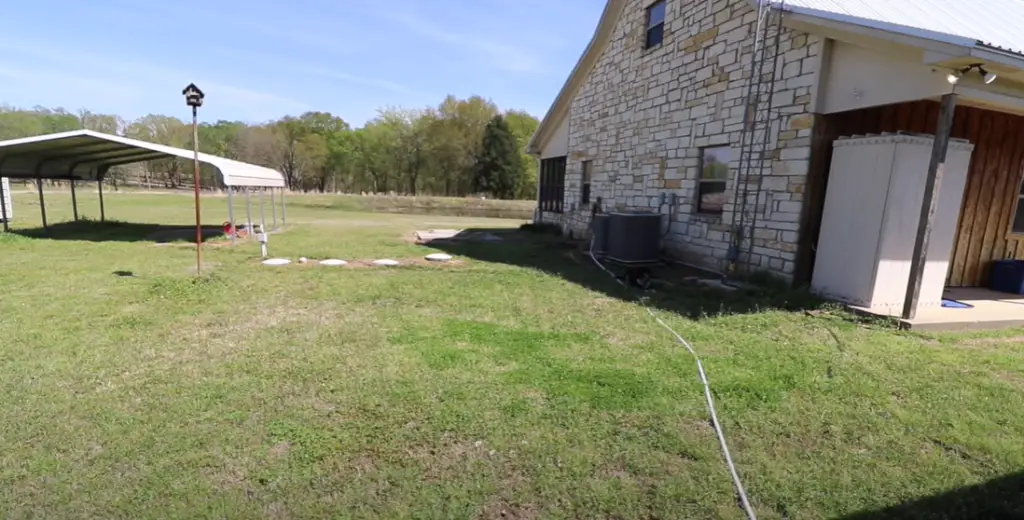
RV water pumps generally fall into two categories: demand pumps and variable flow pumps. Demand pumps are designed to turn on when you open a tap and turn off when it is closed. This type of pump maintains a consistent water pressure by regulating the amount of water it pumps. Variable flow pumps, on the other hand, are designed to deliver a set number of gallons per minute regardless of how many taps are open. These pumps can deliver different pressures to different taps, but maintain a constant flow rate.
Understanding how your RV water pump works is essential for keeping your RV’s water system flowing smoothly. Whether you have a demand pump, variable flow pump, or a high GPM pump, regular maintenance and cleaning of your RV’s water tank and pump filters will help to keep your water fresh and flowing. With a little bit of effort, you can ensure your RV’s water system is always primed and ready for anything the road throws your way.
The Importance of RV Water Pump
When it comes to enjoying the great outdoors in comfort, few things can rival the experience of traveling in an RV. Whether you prefer to park your RV at a campsite or boondock in the wilderness, your RV can provide you with all the comforts of home, especially when it comes to water usage. However, that convenience depends largely on the water pump on your RV, as it is a crucial piece of equipment in any RV. Here, we will explore why the RV water pump is so important, as well as some tips to ensure proper maintenance.
Primary Function: its main function is to move water from the fresh water tank to the various appliances and fixtures inside the RV, such as the sink, shower, and toilet. If it is not working, all of the appliances that rely on running water won’t operate correctly and you won’t be able to have access to fresh water.
Maintain Water Pressure: this pump is crucial in maintaining water pressure in the RV. The water pump needs to be in good working order to ensure a consistent flow of water that is pumped out through the faucets and showerheads of your RV. Make note that the pressure levels could be affected by several other things and this pump is just one of the components.
Decrease Water Usage: its another function is to regulate water usage. It prevents wasting of water by supplying the right amounts of water needed in each appliance or fixture. As soon as you open the valve and turn on the faucet, the RV water pump automatically responds and pumps out just the right amount of water to fill that specific appliance. This makes your RV more efficient and maximizes your water usage.
Proper Maintenance: Like most appliances or equipment, the RV water pump requires routine maintenance to ensure proper operation. The best way to maintain your RV water pump is to keep it clean and dry, checking that it isn’t making any strange noises or vibrations while operating.
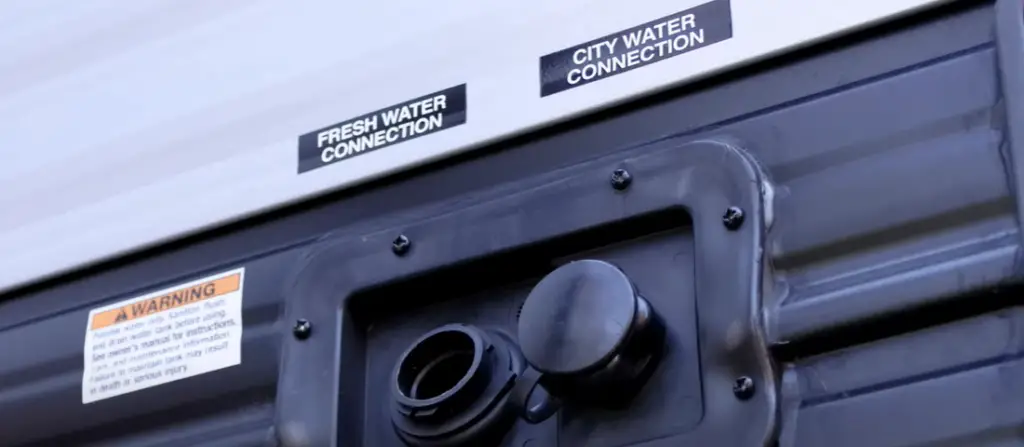
Factors That Run Off Battery
Are you planning to hit the road with your RV soon? It’s important to ensure that all your electrical components, most importantly, your RV’s battery, are well taken care of before you undertake this exciting adventure. There are several factors that can drain the battery, leaving you stranded without power. Let’s explore the various factors that run off an RV battery and what you can do to prevent it from happening.
Aging batteries:
Batteries, like many other things, wear off over time, which reduces their ability to hold a charge. An RV battery generally lasts for about five years, but this can vary depending on the frequency of usage and the quality of the battery. To determine the status of your battery, you can do a load test, use a voltmeter, or consult a professional RV technician.
Parasitic Drain:
While your RV is parked and not in use, certain electrical components such as USB chargers, radios, alarm systems, and clock radios continue to run and draw power from the battery, even if they’re not being used actively. Parasitic drain can eat up your RV’s battery in no time, leaving you with a dead battery when you get back from your trip. To prevent this, always disconnect the battery or use battery cut-off switches when your RV is not in use.
Extreme Temperatures:
Weather extremes such as hot summers or cold winters can have a significant impact on your RV’s battery. In extremely hot temperatures, the electrolyte can evaporate, affecting the capacity of the battery, and in cold temperatures, the battery charges slowly, reducing the battery’s life span. To avoid this, it’s essential to monitor your RV’s battery during extreme temperatures and consider investing in a battery box or insulation.
Overuse:
Your RV’s battery can also run out quickly, leaving you with no power if you overuse it. This often happens when you leave your battery on for extended periods without running your RV’s engine or using solar power to recharge it. Depending on your RV’s size and the components that you’re powering, it’s vital to have a plan to ration the energy consumption to make your battery last for the duration you need. [2]
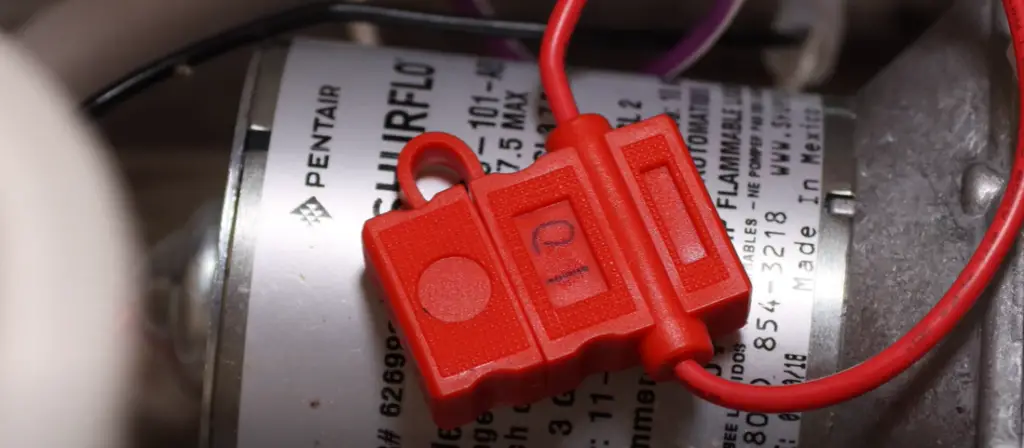
Poor battery maintenance:
Maintenance is an essential factor that determines the longevity of your RV’s battery. You should always keep your battery clean, free of debris, and properly charged. Mixing different types of batteries and charging them at the same time may also affect your RV’s battery performance. Always follow the manufacturer’s instructions about how to maintain and charge your battery.
Your RV’s battery plays a significant role in powering your RV, and it’s essential to ensure that it’s well-maintained and protected so that you won’t be stranded without power on your next adventure. By considering the factors mentioned above, you can prevent your RV’s battery from running out quickly and ensure that it serves you well for many years to come.
Why RV Water Pump Runs Off Battery
Water is an essential resource for any RV experience, whether you are hiking, camping, or just traveling. Having a reliable water source is critical to maintaining hygiene, cooking, and staying hydrated. However, many RV owners face a common and perplexing challenge – why does their RV water pump run off battery? If you have ever dealt with this issue or want to know more about the mechanics of your RV water system, this part is for you.
This pump is created to distribute water throughout the RV supply system by creating pressure. But why does this system need a battery to work? The answer lies in the location of the RV water tank and the water pump itself. Both of these devices are typically positioned below the RV’s water outlets, such as sinks, showers, or toilets. Gravity is not enough to create water pressure that can travel through the entire system without the need for a pump. Therefore, RV water pumps work by creating pressure that forces water through the pipes and up to various outlets. The water pump requires a power source, which usually comes from the RV battery. [3]
But why a battery and not the RV’s electrical supply? It all comes down to the need for flexibility and portability. RVs need to be self-contained and capable of operating off-grid for extended periods. Using the RV’s electrical supply risks draining the primary engine battery or having issues with prolonged use. The RV’s battery is designed to deliver the necessary energy directly to the water pump, ensuring water flow consistency and long battery life.
However, like any device that relies on batteries, the RV water pump’s battery needs to be regularly maintained and monitored. Batteries can degrade over time or lose their charge if not properly maintained, meaning that water pressure may decrease or stop entirely. Ensure you know how long your battery will last, have a plan for charging it, and always check its charge levels before setting off on your next RV adventure.
How to Winterize Water Pump System
Winter is a beautiful season, with fresh chilly air and snowstorms, offering you ample opportunity for unique outdoor activities. But, with the season comes the snow, and it may get a bit challenging if you own an RV.
Steps to Follow Before Starting the Winterization Process
As you prepare to winterize your RV water pump system, ensure that the tank is empty, and the water heater is off. There should be no water in any of the RV pipes, or else it might lead to the growth of bacteria and may cause damage to the pump system. The refrigerator should be unplugged, and the batteries should be disconnected.
Remove Any Water from the Water Pump System
Disconnect the hose leading from the freshwater tank to the water pump and insert it into a container, which you will use to collect the water. Turn on the freshwater pump and open the cold and hot water taps until all the water is drained, ensuring that there’s no water left in the system.
Add Antifreeze into the Water Pump System
The next step is to pump antifreeze through your RV water pump system. You can purchase an RV antifreeze designed for pumping through your plumbing system. Insert the intake hose into the antifreeze container and connect it to the water pump. Turn on the water pump, opening each faucet and valve individually, and let the antifreeze work through the system until you see it coming out of each tap.
Verify That the Antifreeze is Working Correctly
Check the antifreeze around the water pump area to make sure that it’s clear and free of any water. Then, pour some RV antifreeze into every drain outlet, the toilet, and the shower to protect the drain. Be careful not to use any regular antifreeze, which can damage your RV’s pipes.
Protect Your RV during Storage
In addition to protecting your RV water pump system, you should also protect the whole of the RV during storage. Wash your RV, paying extra attention to the underside, and apply a protective paint sealant to safeguard the exterior. Cover the RV with a tarp, and keep it in a protected area, away from any dangers that could cause damage to the RV.
Follow these steps, and you’ll have peace of mind when winter comes and goes. Happy RVing!
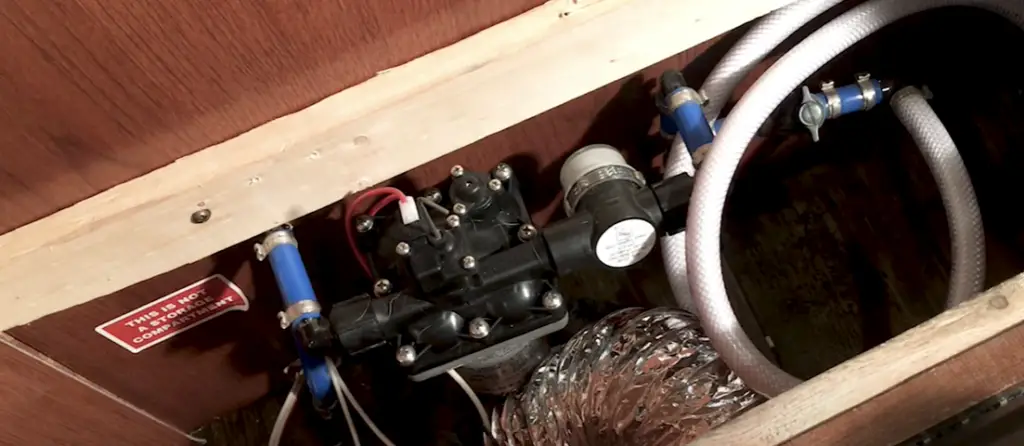
FAQ
How long will a 12-volt battery run a water pump?
The time that a battery can run a water pump entirely depends on its capacity, the pump’s voltage, and amperage. On average, a 12-volt battery with a capacity of 100 Ah can run a 12-volt water pump with 8.3 amperage for 12 hours. But, keep in mind that the more the pump’s amperage or the lesser the battery’s capacity, the lower time it will take to drain
Can a battery power a water pump?
Yes, a battery can power up a water pump. But, before choosing a battery, make sure that its voltage matches with the pump’s voltage. A 12-volt DC battery is commonly used in water pumps; however, pumps with a voltage of 24V or 48V are also available.
Can a water pump work without electricity?
Yes, a water pump can work without electricity. There are two types of water pumps, mechanical and manual. A mechanical water pump can run by wind, solar energy or even human power, while a manual water pump is powered by hand. Mechanical pumps come in various types, like jet, diaphragm, and multi-stage pumps. These pumps can give a higher flow rate and pressure than manual pumps.
Useful Video: Does the RV water pump need to be on when connected to city water? Newbie mistake!!
Conclusions
In conclusion, RV water pumps can run off batteries. However, you need to ensure that your RV battery is fully charged and that you’re not wasting power on unnecessary devices. So, always turn off your water pump when you’re not using it, and remove any non-essential devices that might be draining your battery. Additionally, ensure that your RV battery is well-maintained and that you recharge it regularly. By following these simple steps, you can ensure that your RV water pump always has a steady supply of power. Happy camping!
References:
- https://iheartrving.com/travel-adventure/travel-tips/how-to-pick-the-best-water-pump-for-your-rv-in-2022/#:~:text=The%20RV%20water%20pump%20pulls,manual%20hand%20or%20foot%20pump.
- https://www.outdoorsy.com/blog/rv-electricity-basics#:~:text=RV%20batteries,-Most%20RVs%20have&text=The%20amount%20of%20power%20the,conditioning%20or%20heating%20systems%20either.
- https://campergrid.com/does-rv-water-pump-run-off-battery/

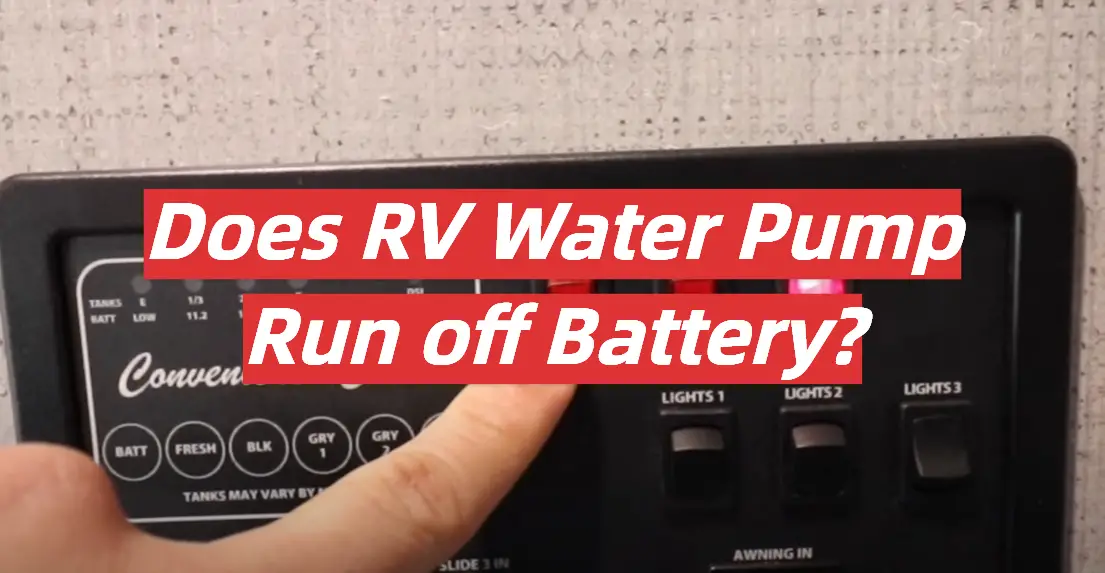



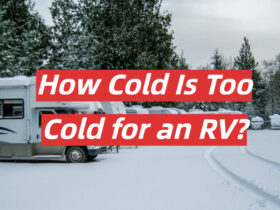
Leave a Reply